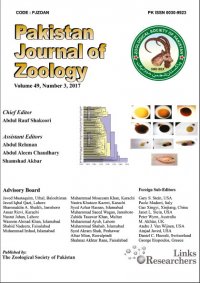1Farm Animal Genetic Resources Exploration and Innovation Key Laboratory of Sichuan Province, Sichuan Agricultural University, Chengdu Campus, Chengdu 611130, China
2Sichuan Animal science academy, Chengdu 610066, China
3Animal Breeding and Genetics Key Laboratory of Sichuan Province, Chengdu 610066, China.
* Corresponding author: liuyp578@yahoo.com
ABSTRACT
Pullorum disease is caused by Salmonella Pullorum and does a great loss to the poultry industry. As a universal innate immune gene, Myeloid differentiation primary response gene 88 (MyD88) can activate the nuclear factor-κB (NF-κB) pathway and regulate downstream gene expression. Single nucleotide polymorphisms (SNPs) in the coding regions (CDS) of the MyD88 gene have also been reported to be associated with inter-subject differences in responses to Salmonella Pullorum infection in chickens. However, whether the 3’-untranslated region (3’-UTR) of the MyD88 gene is associated with resistance to Salmonella Pullorum infection still remains unknown. In this study, a total of eight SNPs, including three novel mutations [SNP4 (A4812316G), SNP6 (C4813363A) and SNP7 (C4813618T)] and five known loci, were found within 3292 bp sequenced fragments. The allele frequency and genotype frequency of SNP4 (A4812316G) were found to be significantly different (P<0.05) between the case and control groups. However, no significant differences were found in the haplotypes of SNP1 and SNP2 (P>0.05). These results suggest that SNP4 (A4812316G) in the 3’-UTR of the MyD88 gene is linked to genetic resistance to Salmonella Pullorum infection and may provide an important reference for the marker-assisted selection of chickens during disease-resistance breeding.
To share on other social networks, click on any
share button. What are these?










